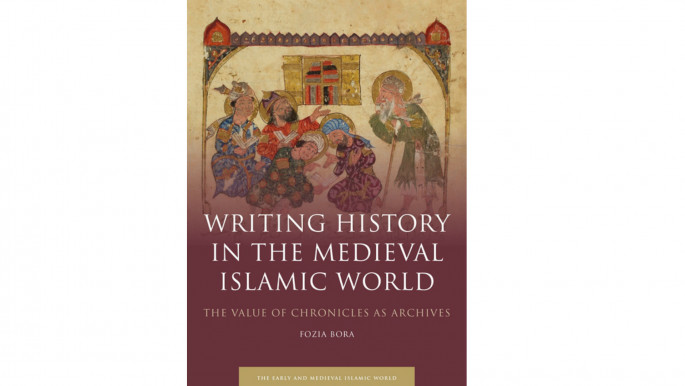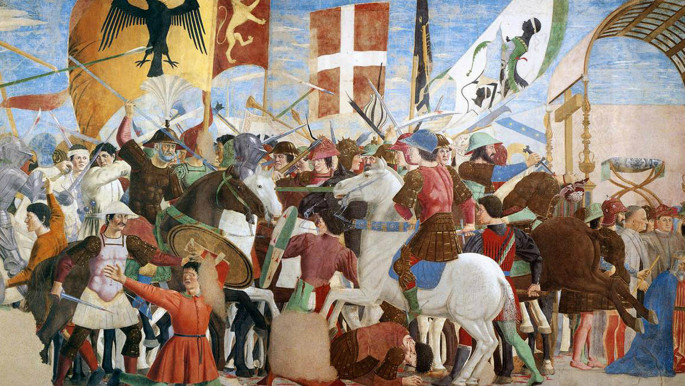Slavery & Islam: A detailed exploration of slavery from the perspective of Islamic texts
Nothing causes more disquiet in modern times than the issue of enslavement, there is something intrinsically evil about the practice of slavery when viewed from contemporary sensibilities.
Nearly every culture has enslavement in its history, something that boggles the mind, many are forced to wonder how it is that our ancestors could do something so clearly evil.
I personally share this disgust and anger that such an institution could have ever existence, I am grateful to live in a time where most people seem to share this conviction. But nonetheless when all feelings are put aside the question of enslavement in historic and religious tradition still needs to be examined and confronted.
The emergence of the Islamic State group [IS] in 2013 and the kidnapping of Yazidi women raised uncomfortable questions about Islamic traditions and its relationship to enslavement.
While most Muslims were clearly disgusted by IS's actions and rejected it, indeed rejecting the legitimacy of IS and its right to interpret Islamic discourse was easy, nonetheless the problem of slavery did not go away with their defeat.
This context seems to be part of the motivation of Intellectual historian and Islamic studies associate professor at Georgetown University, Dr Jonathan A.C. Brown, whose new book Slavery & Islam aims to understand the history of enslavement in Islamic traditions and Muslim societies.
 |
|
| Read more from The New Arab's Book Club: Writing History In The Medieval Islamic World |
Brown who is also a Muslim shares our abhorrence for slavery, his first academic engagement with slavery in Muslim history in 2017, led to a backlash against him by right-wing Islamophobes who zeroed in on the fact he was a Muslim discussing slavery.
They shared a video of his lecture and falsely accused him of being a Muslim scholar justifying slavery, which is at no point what Dr Brown did. The two years since then and we now have this book where Dr Brown goes much further into the history, it is an uneasy but necessary read.
The relationship between Shariah ethics and enslavement has a complex history, Islamic tradition prior to the nineteenth century did not lead to nor call for the abolish of the slave trade. Muslim societies much like societies across the world were actively engaged in the buying and selling of human beings.
However, the argument that Islam had no issue with slavery and it was only contact with the West during the colonial period that shifted Islamic ethics towards finding slavery wrong doesn't hold water. Islam from its inception has an emancipatory framework and aims to maximise emancipation over time and space.
This is the Shariah attitude towards most social issues and especially true of enslavement. This is not quite the same as abolitionism which calls for the ending of the whole trade here and now, though abolition did eventually occur in the Muslim world in the nineteenth century. Islam treats the freeing of a slave to be one of the highest acts, according to Dr Brown. There are many examples of this across Shariah ethics where to do a good deed or receive penitence for some wrongdoing, freeing a slave is often offered as something to do to win favour with God.
 |
| Read more from The New Arab's Book Club: Muhammad: Prophet of Peace Amid the Clash of Empires |
Be that as it may, it cannot gloss over the historically reality of enslavement in Muslim history. Brown goes into a lot of detail about that reality in a fashion that reminds me of David Brion Davis's 'The Problem of Slavery in Western Culture.'
The issue with slavery in the Muslim world is that what constitutes slavery constituently shifts throughout the ages and societies, a problem Brown examines is the notion of slavery itself.
While no scholar of slavery rejects the idea that slavery is a trans historical force that ties Roman chattel slavery to the transatlantic trade together, there is no agreement on what slavery is nor what is trans historical about it. Attempts to offer a comprehensive definition for slavery almost always end up excluding something that is regarded as slavery. Dr Brown discusses this problem but does not offer a resolution to this tension within the scholarship.
This does not prevent him from trying to offer an understanding of slavery in Muslim history. He dismisses the idea that nineteenth century abolish of the slave trade in the West was primarily driven by moral outrage at the practice, but was mostly driven by economic changes that made it too expensive to maintain, the moral explanation for ending slavery only became normative long after the trade had ended.
The history of slavery in the Muslim world certainly needs more treatment and good scholarship has been emerging in recent years. A personal favourite of mine is Rudolph Ware III's 'The Walking Qur'an: Islamic Education, Embodied Knowledge, and History in West Africa' which argues that the origins of the European abolitionist movement is located in 18th century Muslim West Africa. Dr Brown is doing important work and it his book could easily become a classic on the topic.
Usman Butt is a multimedia television researcher, filmmaker and writer based in London. Usman read International Relations and Arabic Language at the University of Westminster and completed a Master of Arts in Palestine Studies at the University of Exeter.




